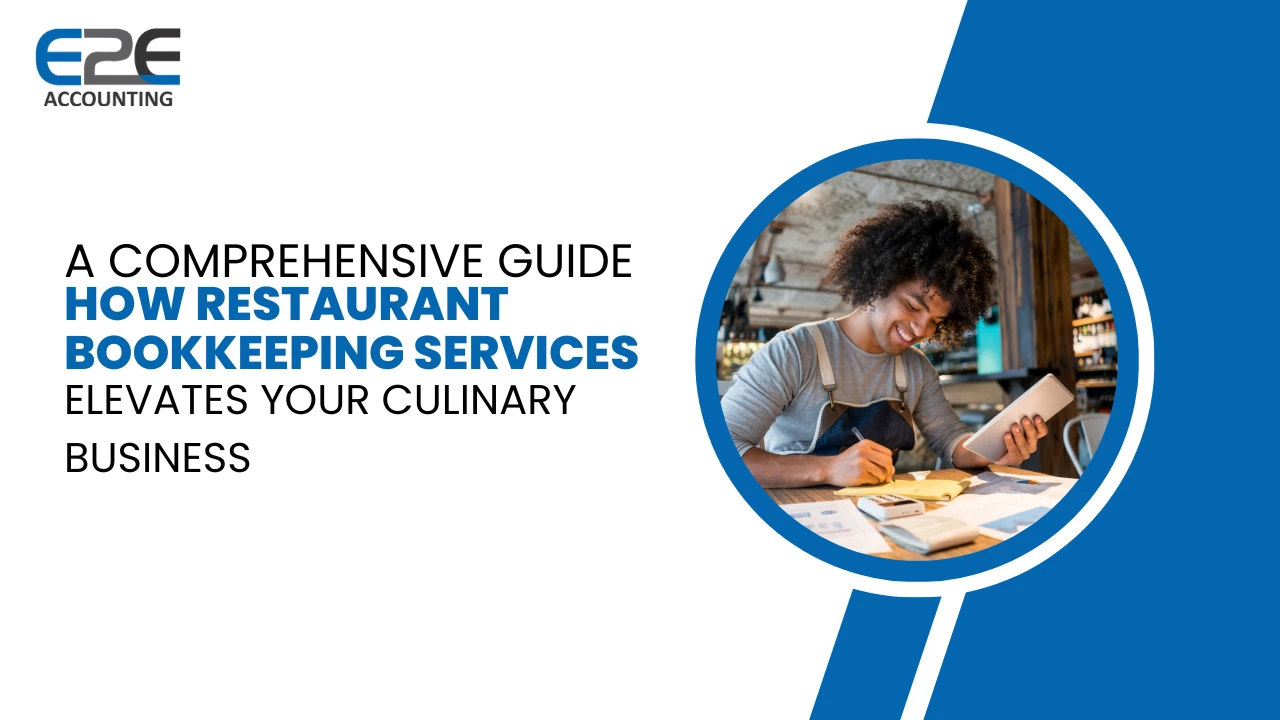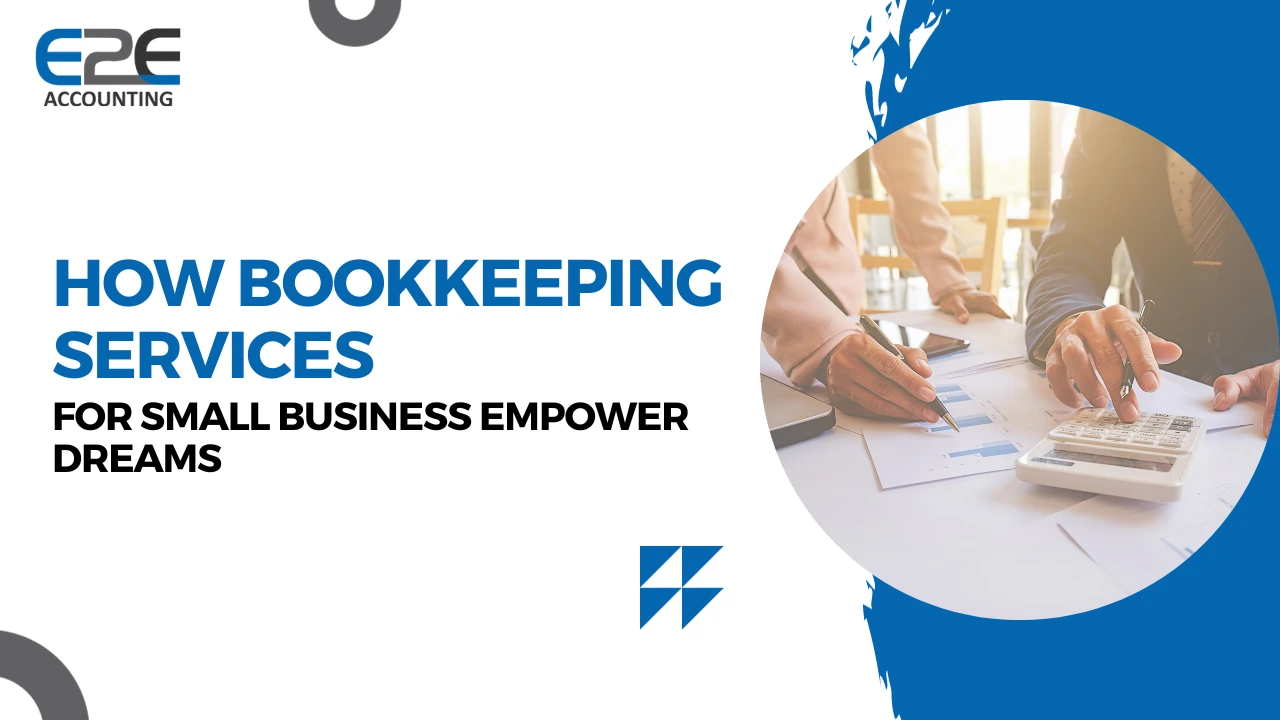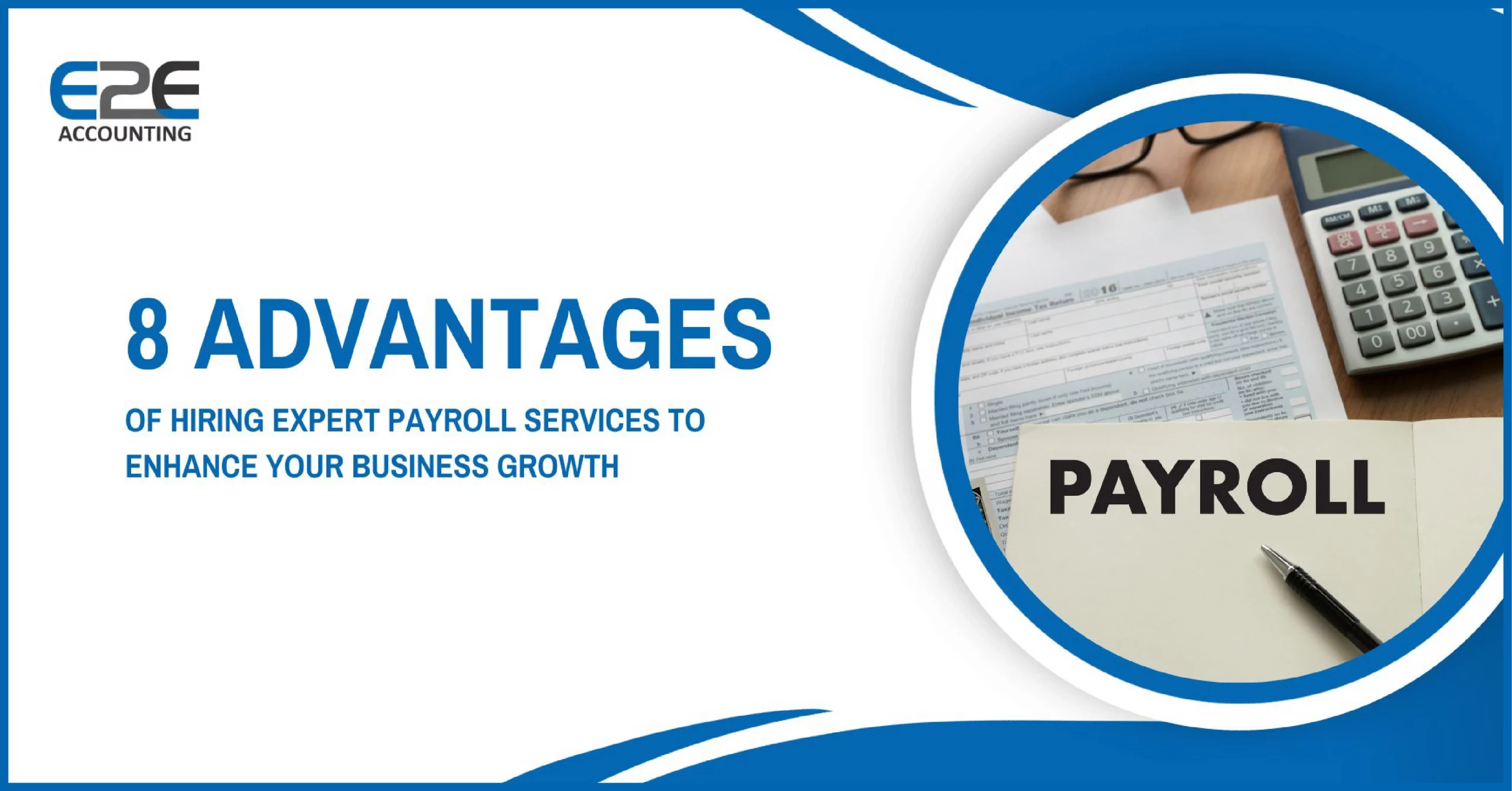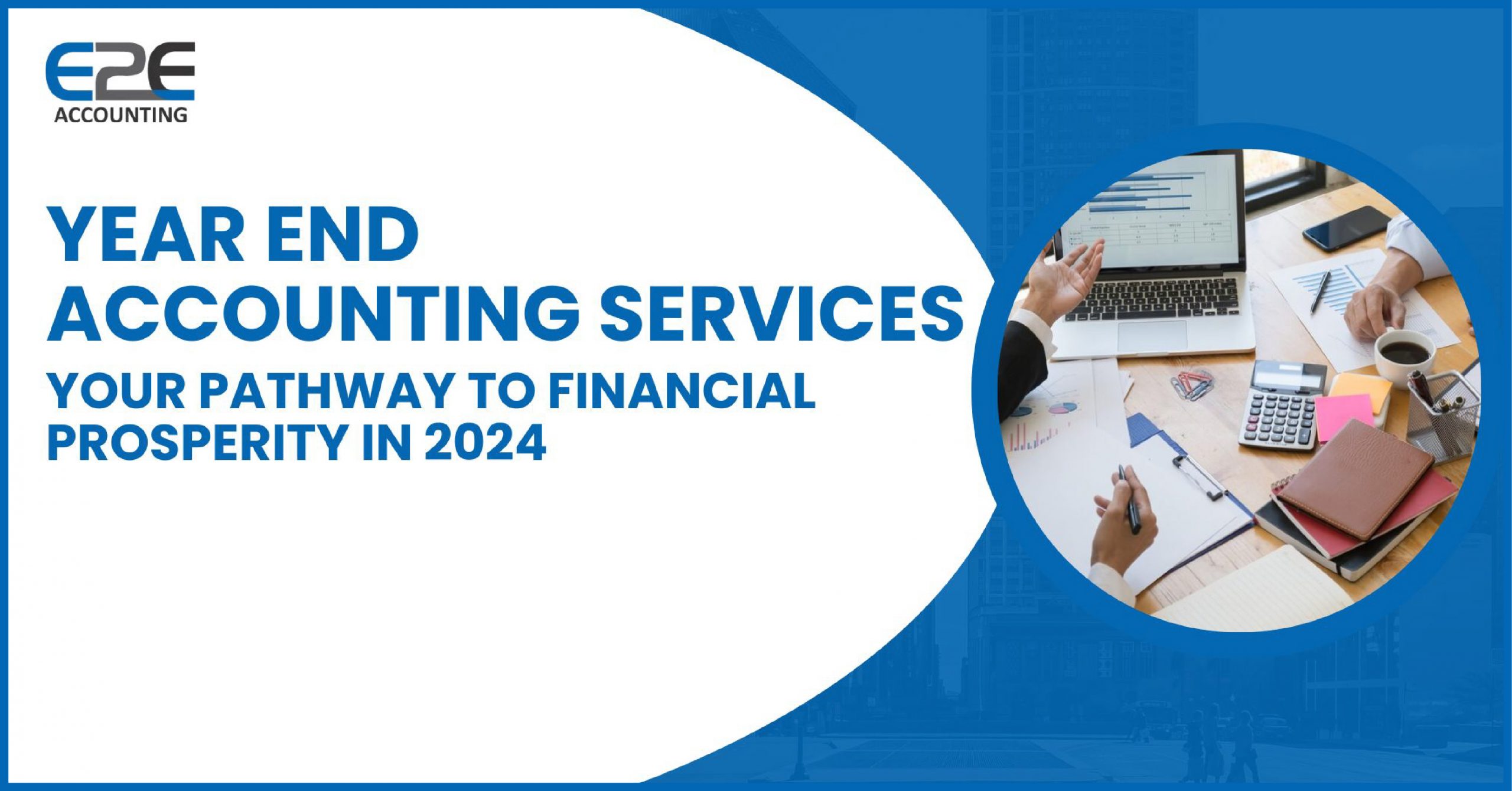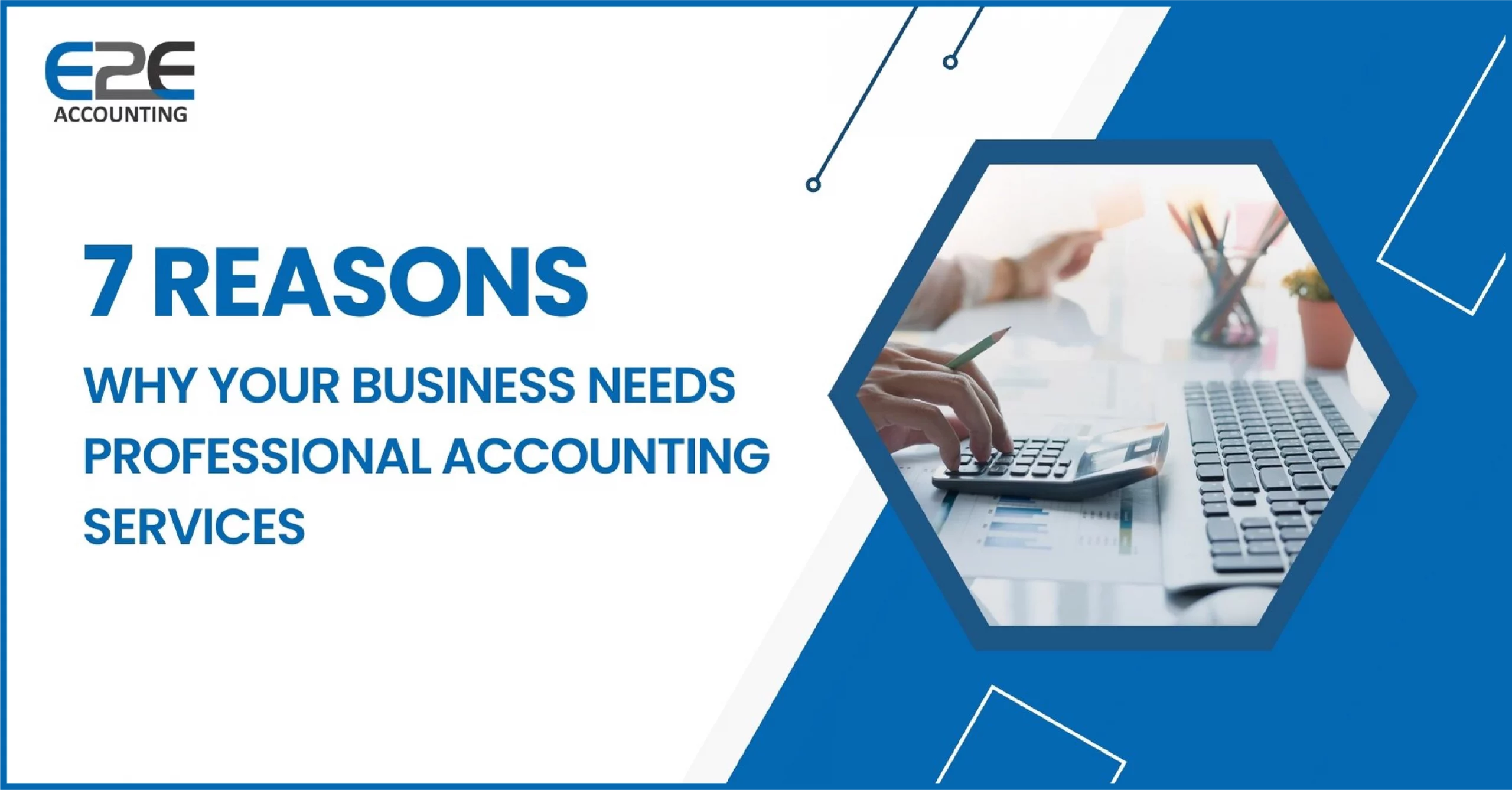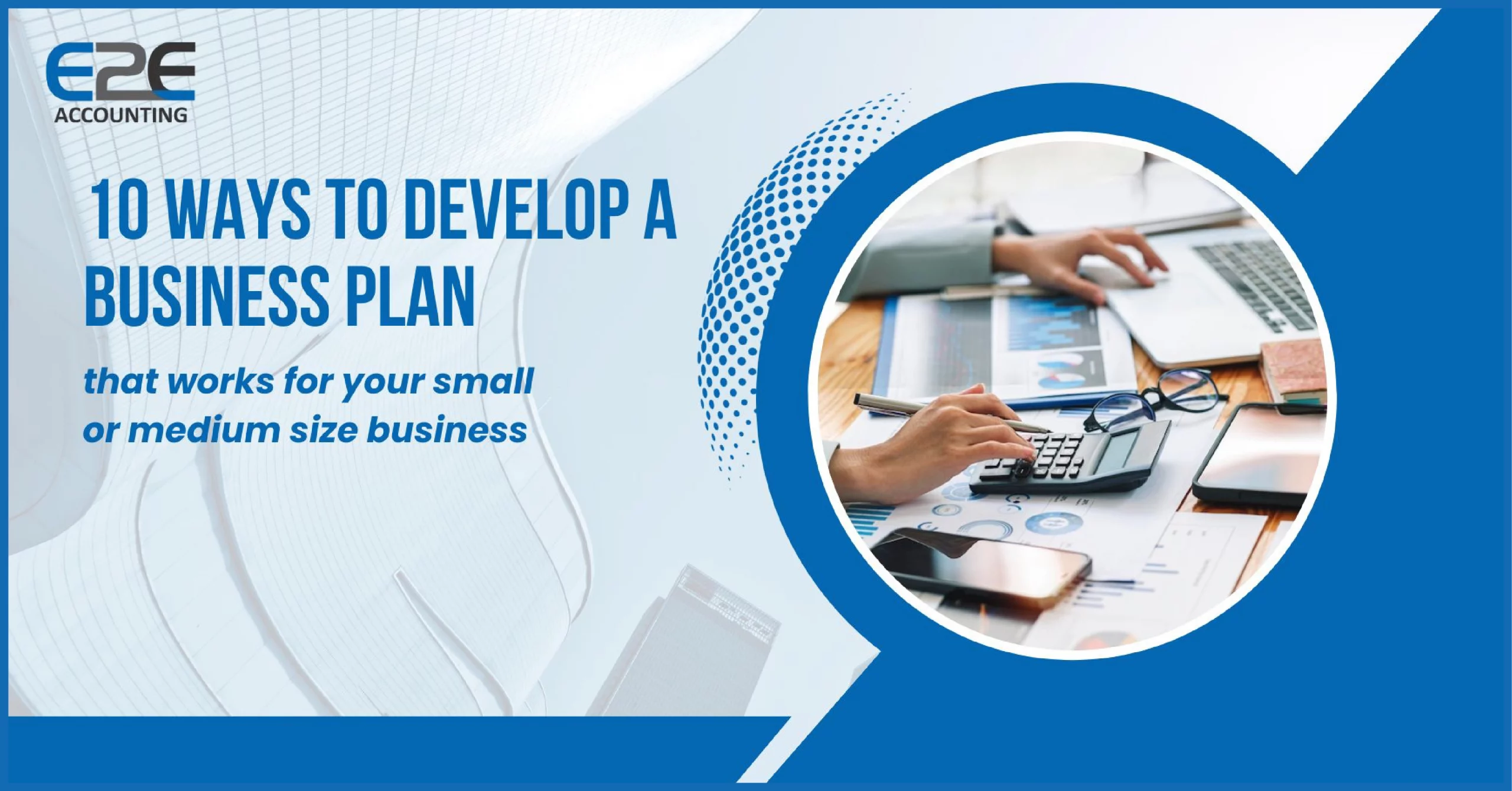- Introduction to Restaurant Bookkeeping Services
- Importance of Bookkeeping for Restaurants
- The Significance of Accurate Financial Records for Restaurant Bookkeeping Services
- Benefits of Specialized Bookkeeping Services for Restaurant Business
- Detailed Financial Analysis of Restaurant Bookkeeping consists of:
- What Needs to Be Tracked in Restaurant Bookkeeping Services
- Technology Integration in Restaurant Bookkeeping
- Streamlining Inventory Management
- Scaling your Culinary business through Financial Forecasting and Budgeting.
- Overcoming Bookkeeping Challenges
- Conclusion
Introduction to Restaurant Bookkeeping Services
Being a restaurant owner, you have endless responsibilities on your plate. You take care of everything from your restaurant’s menu to your staff, from your inventory and finances to managing your restaurant well. Managing everything well, including your finances, becomes difficult with so many responsibilities. Poorly managed finances are bound to create cracks in your restaurant business. To avoid such a situation, stay with us till the end of this blog. This blog comprehensively guides how restaurant bookkeeping services will help elevate your culinary business.
Bookkeeping is not everybody’s cup of tea. Therefore, it is better to leave it to the professionals. Hiring professional bookkeeping services will ensure that all your finances are in order and that you comply with all the necessary tax laws. It will also ensure that your profits are optimised. Professional bookkeeping services range from helping with basic bookkeeping tasks such as recording all your transactions and preparing financial statements to providing more advanced services such as preparing a restaurant’s budget, forecasting, and conducting financial analysis. Regardless of what services you opt for, they have several benefits for your business. We at E2E Accounting specialises in restaurant bookkeeping, you can contact us with your restaurant business bookkeeping services.
Importance of Bookkeeping for Restaurants
Though our restaurant is in the best position with high sales and revenue compared to competitors, our operations could suffer if our accounting system isn’t efficient and accurate. Additionally, management’s focus on delivering quality service and guest experiences might unconsciously sideline accounting and bookkeeping tasks, even though both are crucial. Balancing both of these essential aspects simultaneously can pose a challenge. Therefore, to avoid such situations, it is always advisable to hire professional bookkeeping services. With the help of professional services like E2E Accounting who will perform this task for you, to easily prevent delayed payments, inventory problems, inaccurate or costing problems, and other petty bookkeeping issues.
The Significance of Accurate Financial Records for Restaurant Bookkeeping Services
Bookkeeping and accounting form the backbone of each business. In the case of restaurants, the significance of accurate financial records is essential. It provides several benefits, such as:
- Impact on Financial Health
With accurate financial records, your restaurant will operate more effectively as you get a more transparent picture of business performance. You get a more comprehensive view of the areas wherein you can improve and reduce wastage. It can help you prepare accurate budgeting and forecasting based on which you can make more improved decisions for the future of your business. Lastly, with the help of accurate financial records, you can reduce all the possibilities of fraud or theft in your restaurant.
- Compliance with Tax Regulations
Accurate financial records help you maintain compliance with all the necessary rules and regulations. As the restaurant owner, you are responsible for several activities, such as maintaining and filing accurate payroll data, tax filing, and audits. Any inaccuracies in such filings might be expensive.
Benefits of Specialized Bookkeeping Services for Restaurant Business
When your financial records are accurate, you get higher visibility of your business, through which you can make crucial decisions for when you want to raise investments or for expansion to reduce unnecessary expenses. However, professional accounting and bookkeeping services are necessary for a unique business structure and specific requirements. They are the ones who are well-versed with the right blend of expertise and technology. There are several benefits to opting for specialised bookkeeping services for your restaurant business, such as:
Detailed Financial Analysis of Restaurant Bookkeeping consists of:
Providing excellent customer service with quality food does not mean your business is doing well financially. To understand how good your business is doing financially, you need to realise:
- Which area is your restaurant business generating revenue?
- Which area of your restaurant business are you spending more?
- How much are you spending?
- How much do you need to earn to generate profits?
For all these answers, it is essential that your bookkeeping is maintained on time and you are recording all your revenues and expenses. A detailed financial analysis consists of the following:
- Cost of Goods Sold
Cost of Goods Sold (COGS) is the total cost of all the ingredients used in the restaurant to prepare the menu items, including the garnishes, herbs, condiments, labor, and packaging. Generally, more than one-third of the gross revenue generated by the restaurant goes towards paying COGS. Therefore, it is considered essential for the business. Hence, it is always advisable to keep a tab on COGS.
- Prime Cost
Prime cost is the sum of two crucial costs of your restaurant business. It is the total COGS and labor costs (front and back of the house). Prime cost is the cost to sell your food, drinks, and other products. As per the industry average, the prime cost should always be within the 55% – 60% range.
- Food Cost
Food cost is considered as the ratio of the cost of ingredients (source of preparing and serving the food items listed on the menu) and the revenue generated from those ingredients through sales. It is calculated as the percentage of your overall sales. Food cost helps evaluate the efficiency of your food production and will help you set your menu prices to maximize your profits.
- Contribution Margin
Contribution Margin shows how much of your revenue remains after you have removed your variable cost.
- Menu Item Profitability
Menu Item profitability is analyzing the profitability of individual items listed in the menu. It helps identify high-margin items and those that might need adjustments in pricing or ingredients to improve profitability. If you want your restaurant to generate good profitability, paying essential attention is necessary to create a profitable menu.
- Break Even Point
The break-even point means that your total revenue is equal to your total cost, and you are neither incurring any profit nor loss. It helps you understand the minimum sales values required to cover all your expenses.
- Gross Profit
Gross Profit is the difference between your selling price of the item listed on the menu and the cost of the ingredients and materials used in preparing that dish (in other words, Sales –COGS).
- Net Profit
Net Profit is the amount that remains after you have deducted all your operating expenses, such as rent, payroll, tax, bills, and other leasing costs, from your Gross Profit.
Tax Optimization Strategies
Tax optimization strategies involve the essential legal methods for minimizing the tax liabilities of your restaurant. These strategies include taking advantage of all the necessary deductions, proper bookkeeping, and tax credits, efficiently structuring your business, and optimizing your tax liabilities by appropriately timing your income and expenses in the given tax year.
Accurately maintaining your bookkeeping is essential for the financial health of the restaurant. If you find this task time-consuming and difficult, consult with professional bookkeeping services like E2E Accounting for these tasks so that you can free up your time and focus more on the growth of your business.
What Needs to Be Tracked in Restaurant Bookkeeping Services
Bookkeeping in restaurant services is crucial. It helps in making precise analyses of cost, revenue, and profits and implementing strategies that can help improve your business’s profitability.
- Payroll
Payroll is not just related to paying wages to employees. It covers every aspect of your employee’s salaries, which includes benefits such as insurance, annual leave, bonuses, and taxes.
- Accounts Receivable
Accounts receivable relates to the money your restaurant owes to your vendors on credit. When your accounts receivable are recorded appropriately, it provides complete transparency of what you owe and ensures timely collection of your bills.
- Account Payable
Accounts payable relates to managing and recording the debts of your restaurant to payable to your suppliers of goods or services they provide on credit. Managing your accounts payable appropriately, helps ensure timely payments to your suppliers and avoid late fee payments or supply disruption.
- Sales
Sales is the revenue generated from the services provided in the restaurant form of dine-in or takeaways, delivery, and catering. Keeping track of this revenue is essential for bookkeeping since it helps determine your restaurant’s profitability.
Cash Management
Monitoring and managing your restaurant’s cash flow is essential. Cash flow refers to the incoming and outgoing cash from your business daily, weekly, and monthly. However, to monitor your cash follows you need to do your bookkeeping, if not daily, at least once a week or monthly.
A positive cash flow is essential for every business, including restaurants. Therefore, efficient tracking of your cash flow through appropriate accounting helps in understanding whether you have enough working capital to help you meet your day-to-day expenses and investments and whether your restaurant business is generating enough profits.
Technology Integration in Restaurant Bookkeeping
Integrating technology into restaurant bookkeeping will help you streamline your operations and enhance efficiency. Restaurant bookkeeping software is essential in managing your finances and implementing robust security measures that help safeguard your sensitive financial data.
Restaurant Bookkeeping Software
Accounting software: Several restaurant bookkeeping software can be tailored according to your requirements. Software platforms such as Xero, FreshBooks, and QuickBooks provide specific features that enable tracking your expenses, inventories, and payrolls.
Point-of-Sale (POS) Integration: Integrating POS systems within your accounting software will help you automatically sync your sales data. It also helps simplify the reconciliation process, thus ensuring accuracy in your financial records.
Inventory Management Tools: Choosing an inventory management tool will help you track your restaurant inventory stock levels and manage ingredient costs, thereby minimising wastage.
Cloud-based Software: Lastly, adopting cloud-based software solutions to access your financial data from anywhere is always advisable.
Security Measures while considering the restaurants bookkeeping software
Ensuring appropriate security measures for your sensitive financial information is essential. Therefore, your data must be encrypted with regular software updates and patches and secured networks in the form of firewalls, which can prevent any unauthorised access. Also, ensure limited access to your financial data by limiting user permission and access control measures.
Lastly, it is equally essential to take regular backups of your data and store it at a secured location to prevent any data loss in case of system failures, cyber-attacks, or other unforeseen events.
You can effectively manage your restaurant bookkeeping tasks by implementing specialised software and stringent security measures while safeguarding financial information against potential threats. However, if you need expert help, take the necessary steps now by contacting professional bookkeeping services like E2E Accounting, we specialise in restaurant bookkeeping.
Challenges in Restaurant Bookkeeping Services
Restaurant Bookkeeping Services face several challenges due to the nature of this industry, which has diverse sources of income. Therefore, managing cash flows and including suitable POS software systems have become challenging. Yet another big challenge is to find an expert bookkeeper. Below are a few solutions to help you overcome your restaurant bookkeeping challenges.
Varied Expenses and Income Sources
Categorising appropriate systems within your accounting software and classing your various sources of income and expenses can help you keep track of your records and ensure accuracy. However, it is also essential that you regularly reconcile your accounts to maintain compliance with your financial records.
Managing Cash Flow:
To manage your cash flow effectively, you must forecast your cash flow by analysing it with your historical data and your anticipated sales. It will help you maintain your cash reserves for unexpected or unforeseen circumstances. An effective accounting software tool can help you manage your cash flows and project your cash movements effectively.
Finding an Expert Bookkeeper:
Seeking the help of experienced and professional bookkeeping services who have experience in the restaurant industry can help you ease your accounting and bookkeeping work; they will manage your inventory, calculate your COGS accurately, and work out your taxes and payroll, thus relieving you so that you can focus on the growth of your business.
Selecting a POS System:
While selecting your POS system, several factors must be considered, such as:
- Ease of use of the system
- Integration capabilities with your accounting software
- Reporting features present in the POS system
- Scalability and cost
Some popular POS systems available are Square, Toast, Lightspeed, and Revel Systems. Before selecting the system, make sure you are taking a demo of the system and reading all the reviews to understand which method best suits your needs and the requirements of your restaurant.
Streamlining Inventory Management
Having an effective inventory management system in your restaurant is necessary. It helps in tracking your inventory and stock of your ingredients efficiently, thereby managing your costs and reducing waste. Below are a few tips that can help streamline your inventory management system effectively.
Tracking Ingredients and Costs:
Inventory Tracking Software: Use appropriate inventory management software that can help you track the ingredient quantities, prices, and usage in real time. It also helps in maintaining accurate records and predicting reordering needs.
Standardised Recipes: Develop standardised recipes with precise ingredient quantities. It will help you maintain consistency in portion sizes, which can aid in accurately tracking ingredient usage.
First-In, First-Out (FIFO) Method: Implement the FIFO method through which you use older inventory first and reduce the chances of wastage in the form of expired ingredients or unusable.
Waste Reduction Strategies:
Inventory Audits: Conduct regular inventory audits. It will help identify overstocking, spoilage, or unnecessary purchases, optimising your inventory levels.
Menu Analysis: Analyse your sales data. It will help you determine which items are popular or less popular on your menu. Adjust your menus to focus on items that utilise common ingredients or try to reduce those items that contribute to high waste.
These strategies can help your restaurant streamline inventory management, reduce costs, and minimise waste, improving your operations and profitability.
Scaling your Culinary business through Financial Forecasting and Budgeting.
Financial forecasting and budgeting help you plan your restaurant’s growth and identify essential trends to generate more profit. For effective financial forecasting and budgeting, you must analyse and project your sales data to determine your future revenues, estimate your expenses, including your food cost, manage your cash flow to help you control your cost, and determine effective liquidity measures to cover your expenses and investments. All these analyses will help you plan your growth and identify profitable trends.
Planning for Growth:
Apart from budgeting and forecasting, effective planning for your growth also includes market analysis, where you must research current market trends and identify expansion or diversification opportunities. Market analysis includes studying your locality’s demographics, competition, and consumer preferences and strategizing accordingly.
Secondly, you also need to implement adequate infrastructure and technology that can help you increase your sales volume. Apart from this, yet another area of focus is the effective branding of your restaurant. It can be achieved by increasing the brand’s visibility through campaigns, social media platforms, and loyalty programs, which will help you attract new customers and retain your regular customers.
Identifying Profitable Trends:
How do you identify your profitable trends? There are various ways in which you can do that.
Menu Analysis: Understand your menu. Use your sales data and identify which item is generating high-profit-margin items and which one is not. Highlight and promote these items or consider expanding similar offerings and replace those not providing higher profit margins.
Customer Feedback and Preferences: Gather your customer feedback. It will help you to understand preferences and trends. Make changes in your menu and services based on popular choices to capitalise on profitable trends.
Engaging in thorough financial forecasting and strategic planning through bookkeeping will help your culinary business scale higher towards growth, and by analysing profitable trends, you can position your restaurant on the path of success by adapting to the changing market conditions and maximising your profitability.
Overcoming Bookkeeping Challenges
Overcoming the bookkeeping challenges of your restaurant, especially while you are dealing with seasonal fluctuations and adapting to industry changes, requires strategic approaches.
Dealing with Seasonal Fluctuations:
Seasonal fluctuations can be dealt with the help of effective financial forecasting and flexible budgets. It will help you maintain cash reserves during your peak season and set aside your profits as reserves. It will help you cover your costs during the off-season, reducing the impact on income.
Adapting to Industry Changes:
Ensure you and your staff stay updated with the latest industry trends and technological advancements and change yourself according to customers’ preferences. Eventually adapting yourself to the latest industry trends is crucial to survive the competition. Therefore, adopting an agile business model is always advisable, which will eventually help you maintain flexibility in your operations.
By employing proactive strategies like flexible budgeting, leveraging cash reserves, staying informed about industry changes, and adapting operations accordingly, you can easily navigate your restaurant through seasonal fluctuations and industry shifts more effectively in bookkeeping and overall business management.
Conclusion
To conclude, effective bookkeeping is paramount for the success of a restaurant. Additionally, it is the backbone of every business, enabling you to make informed financial decisions and strategic planning and maintain a healthy bottom line. A well-managed bookkeeping system is also crucial, from tracking expenses and managing cash flow to adapting to industry changes and fostering customer trust through transparency.
In Coventry, UK, there is a renowned accounting product of Corient Business Solutions called E2E Accounting. Among the many services we also provide monthly bookkeeping, tax advisory, and management accounting. In order to overcome seasonal changes, proactive strategies, flexible budgeting, and foresight are necessary. Our goal is to give you an in-depth knowledge of your company’s financial performance. Remaining abreast of industry developments necessitates adopting new technologies, encouraging business model adaptability, and maintaining knowledge.
Ultimately, restaurants can build a strong foundation for long-term success by prioritising transparent financial operations, staying adaptable to market shifts, and consistently delivering quality service. Efficient bookkeeping ensures compliance and paves the way for growth, sustainability, and a positive brand reputation within the competitive culinary landscape. For any expert advice, you can contact our team of expert advisors to see how our accounting services can help you.

